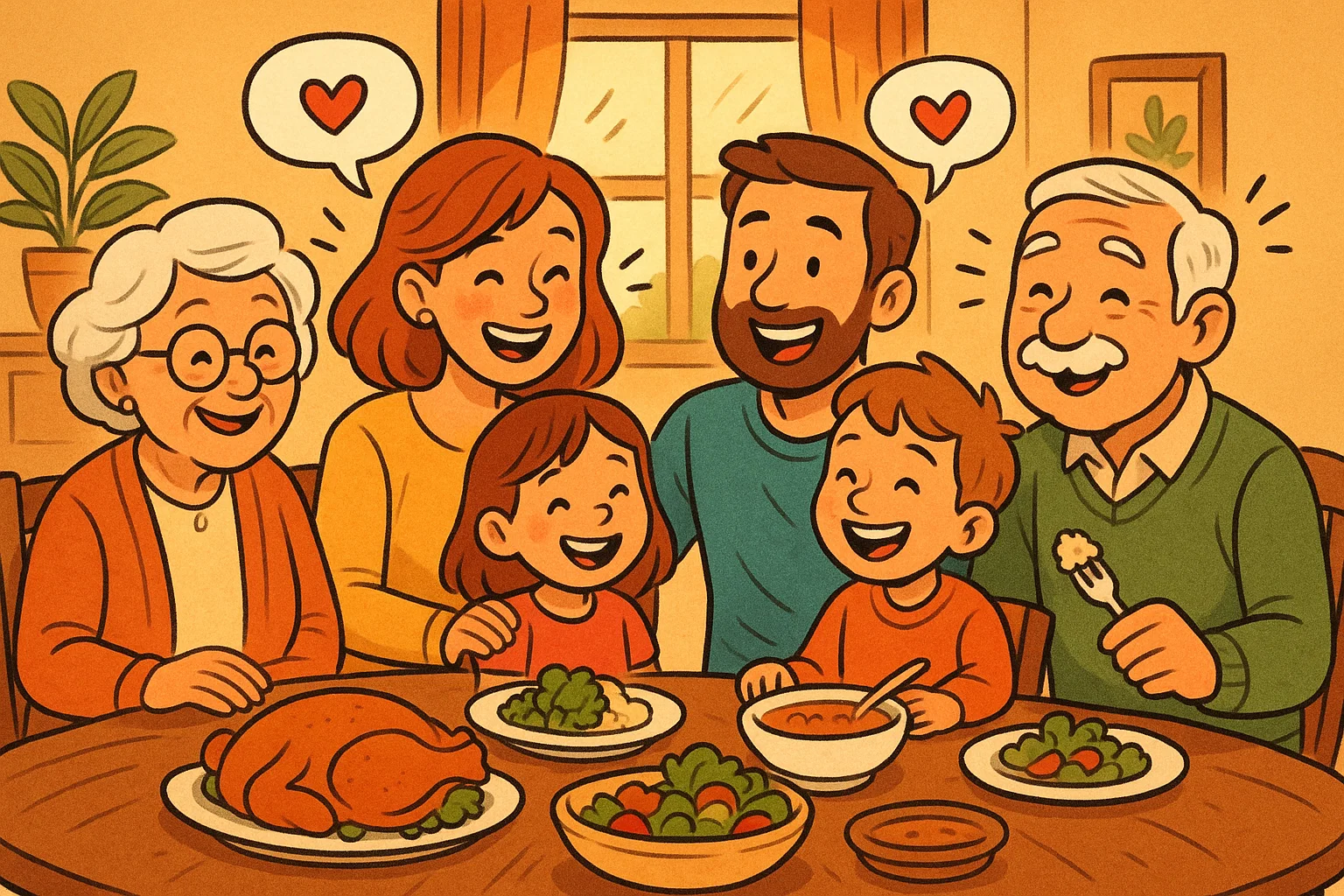For many, the idea of traditional family values evokes nostalgia for a time when life seemed more structured and predictable. These values are often associated with a particular kind of family unit, typically a nuclear family with a heterosexual couple and their children. They form a foundational belief system that guides behavior, relationships, and child-rearing practices. While they may seem like an artifact of the past, these values continue to influence today’s society, shaping everything from government policies to personal choices about marriage and parenthood.
In a rapidly changing world, with new family models and different social norms, the concept of traditional families is being re-evaluated. Understanding their historical roots and social impact is crucial for grasping the complex family dynamics of the 21st century. This exploration isn’t about promoting one model over another, but rather about examining the principles that have long been seen as the bedrock of a strong family structure and a stable society as a whole.
Concept and History
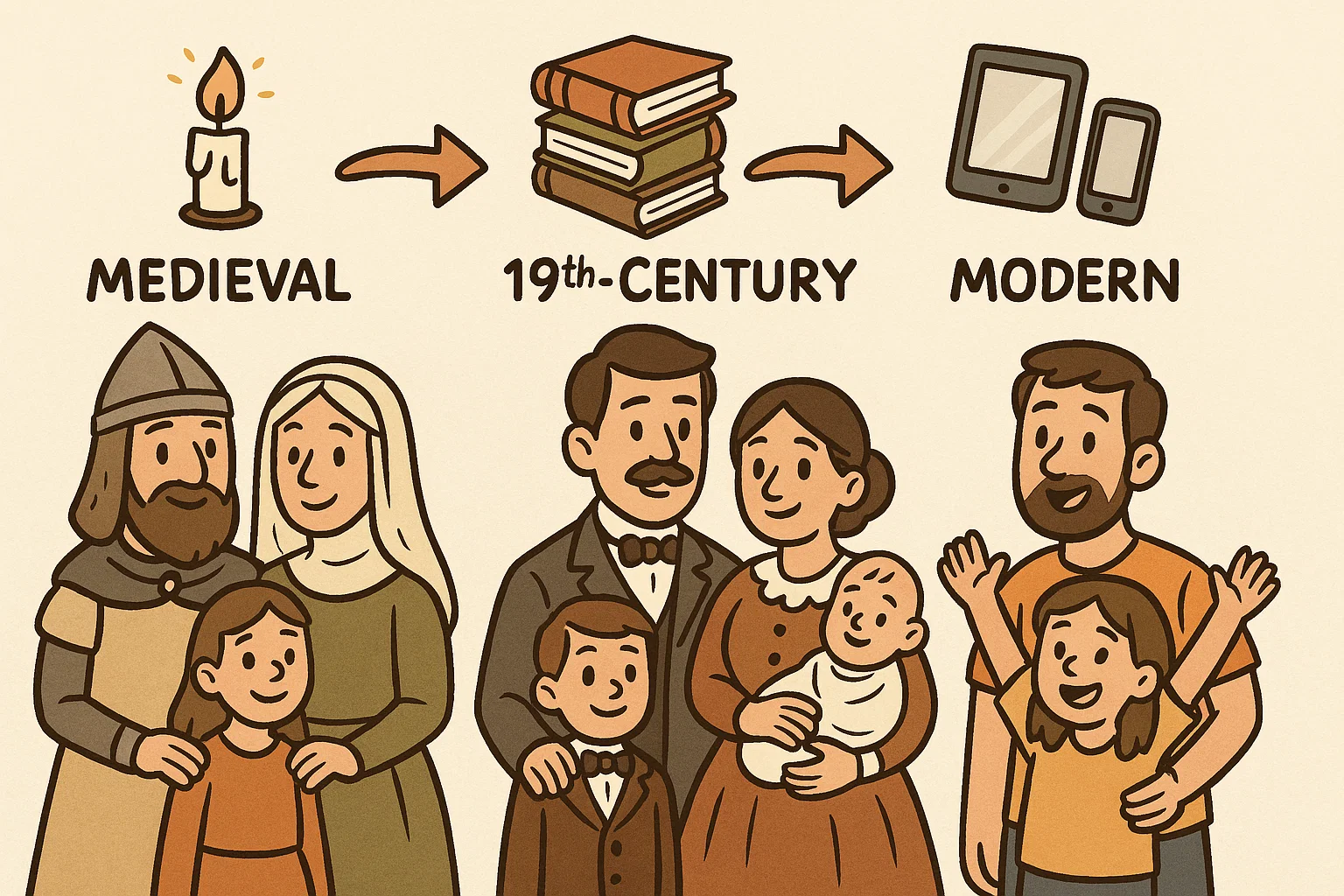
Historical development of family values
Historically, the concept of family values has evolved significantly. In many pre-industrial societies, extended families were the norm, with multiple generations living and working together. The focus was on the collective good, not individual autonomy. The rise of industrialization in the 18th and 19th centuries led to the shift towards the nuclear family, as people moved to urban centers for work. This new family unit became the primary model, emphasizing self-sufficiency and emotional bonds within the home.
Religious and cultural foundations
Many traditional values are deeply rooted in religious teachings. In Abrahamic religions like Christianity and Judaism, the household is often seen as a divine institution, with specific roles and responsibilities outlined for each member. Moral values such as fidelity, respect, and hard work are often promoted as a way to maintain a good family. These values also vary across different cultures, with Asian and Latin American cultures often placing a stronger emphasis on filial piety and respect for older generations.
Philosophical perspectives
Philosophers from ancient Greece to modern times have debated the role of this core social unit. For example:
- Aristotle saw the household as the fundamental unit of the state, essential for a stable social fabric.
- Later thinkers, particularly in the Enlightenment, began to emphasize individual rights, which in turn influenced debates about roles and personal freedom within the structure.
Definition
Key moral principles
At its core, a set of values often associated with traditional families includes principles like loyalty, commitment, and unconditional love. These moral standards are believed to guide children in distinguishing right from wrong and to provide them with a strong ethical compass.
Core Traditional Family Values
| Value | Description |
| Commitment | The belief that a couple should stay together through challenges. |
| Fidelity | Exclusivity within a marriage, essential for trust. |
| Respect | For parents, elders, and authority figures. |
| Hard Work | The belief that each person contributes to the household’s well-being. |
| Responsibility | Taking ownership of one’s actions and duties within a family. |
Family roles and hierarchy
The classic traditional family model often outlines distinct gender roles. The father is typically seen as the main provider and protector, while the mother is the primary caregiver and homemaker. This division of labor, though criticized by feminist movements, was historically viewed as a way to ensure the family’s survival and stability.
Social stability aspect
Sociologists argue that strong family structures are vital for a stable society. They serve as a primary institution for socializing children, reducing anti-social behaviour, and providing care for the young and old. The argument is that when these kinship units break down, the fabric of society is weakened.
Importance in Society
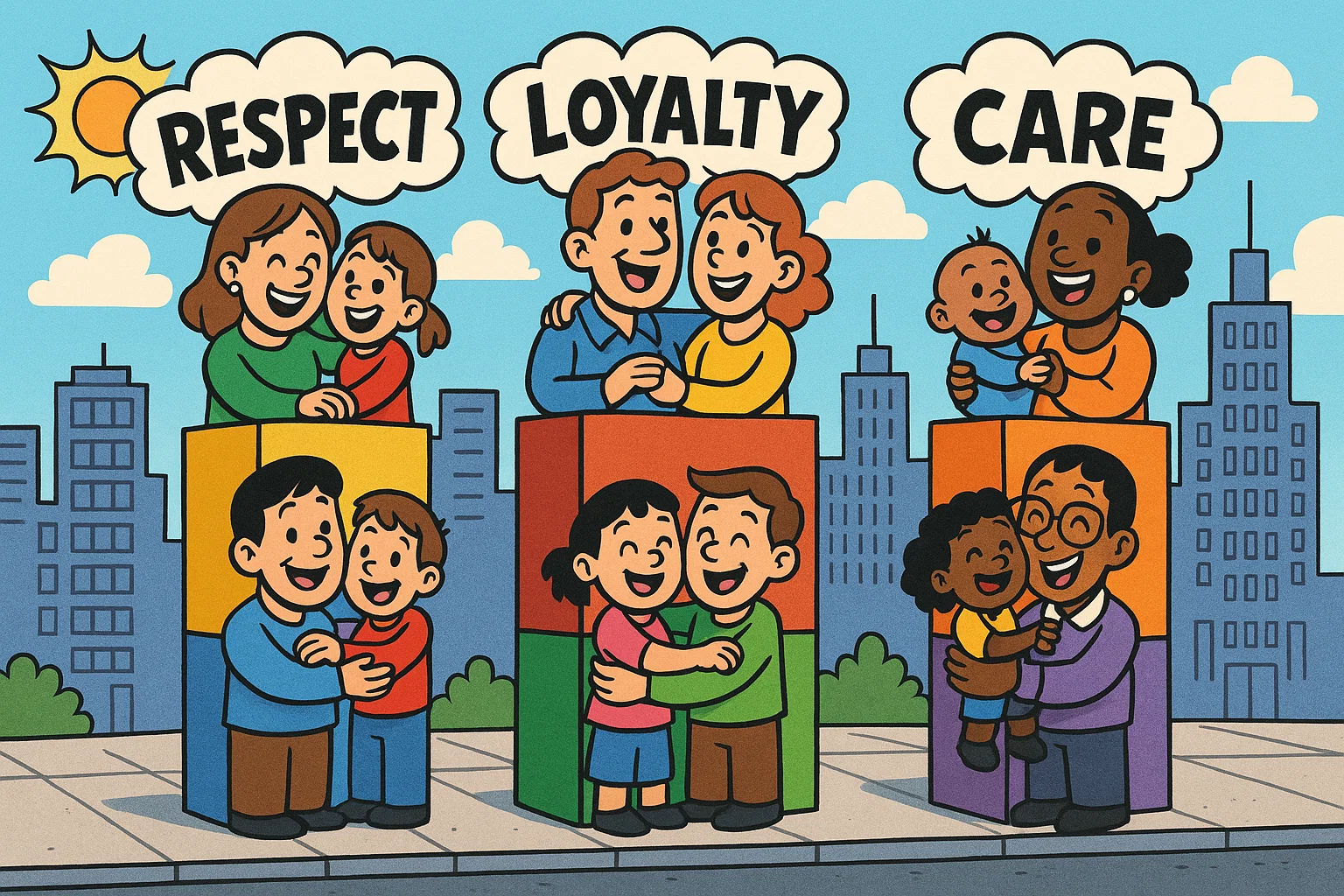
This core unit is vital to the stability of a society for several reasons:
- Role in child upbringing: Parents in traditional families often prioritize teaching their children a specific set of values. This includes instilling discipline, a strong work ethic, and a sense of responsibility. This early foundation is seen as crucial for a child’s development, providing the tools they need to succeed later in life.
- Support in difficult times: The household is often the first line of support in times of crisis. Whether it’s financial hardship or personal tragedy, extended families and close-knit nuclear units provide care and emotional support, acting as a crucial safety net.
- Cultural preservation: Traditional values also play a key role in preserving cultural heritage. Through traditions, stories, and rituals, older generations pass down their history and beliefs to younger generations, ensuring that cultural identity is maintained across time.
Role of Gender Roles
Father as provider and protector
In the classic traditional family, the father’s role is often defined by his ability to provide for his kin and protect them from external threats. This role is tied to the concept of masculinity and is seen as a key responsibility.
Mother as caregiver and nurturer
The mother’s role is typically centered on nurturing and emotional support. The term “homemaker” reflects this focus on creating a loving and stable home environment. This involves child-rearing, managing the household, and ensuring the emotional well-being of the unit.
Debates about equality
Movements like feminism have long challenged these rigid gender roles, arguing that they limit individual potential and create inequalities. The debate centers on several key points:
- Are these roles essential for stability?
- Are they outdated constraints on personal freedom and reproductive autonomy?
- How can we achieve greater gender equality?
A push for greater gender equality has led many modern couples to adopt more flexible roles, sharing responsibilities like childcare and financial provision.
Effects on Children
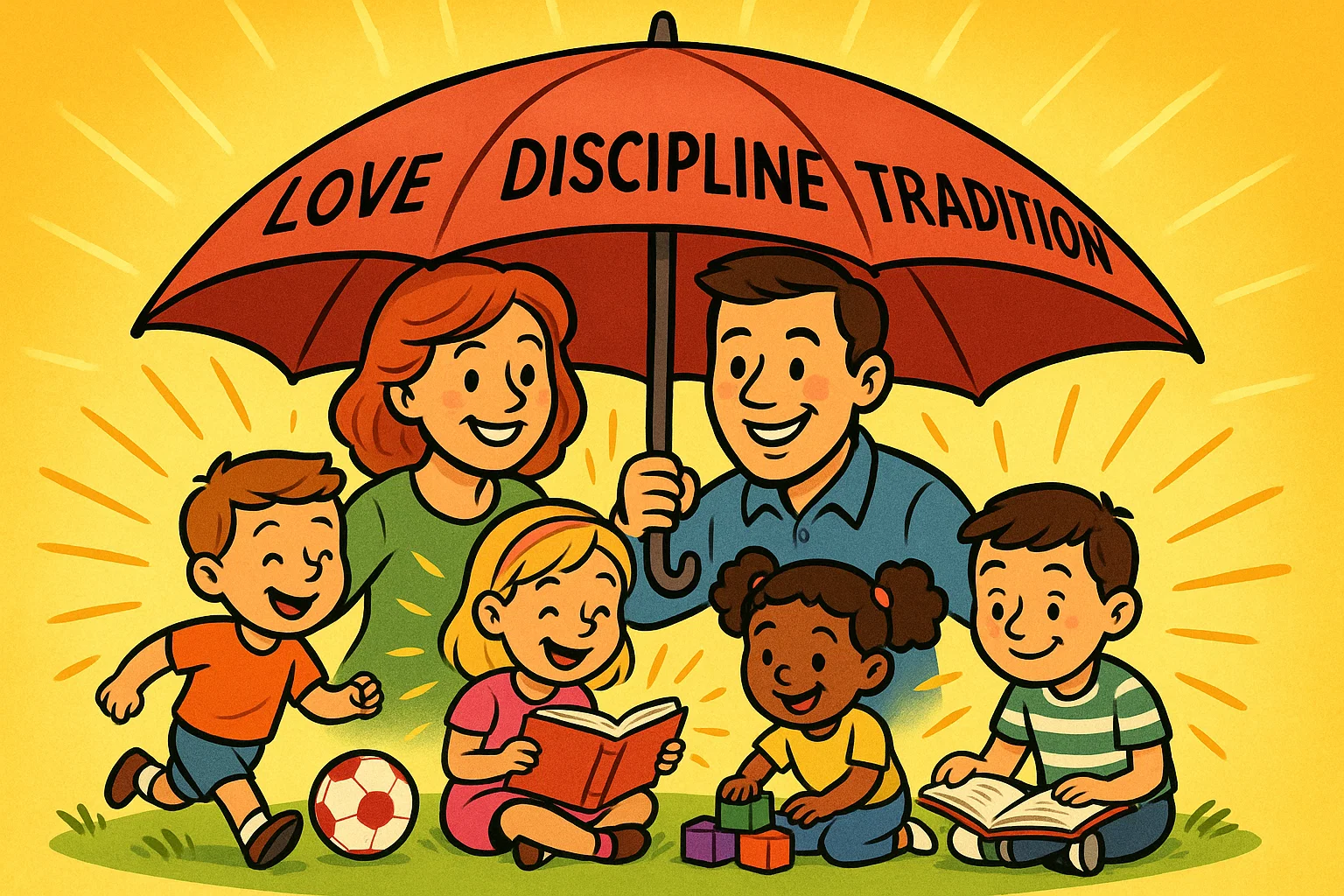
Stable family structures often provide a strong foundation for children, leading to:
- Psychological stability: The consistent presence of two adults—whether a heterosexual or same-sex couple—can provide a sense of security and predictability that is crucial for healthy development.
- Education and discipline: Traditional families often place a strong emphasis on education and discipline. Children are taught to obey their parents and respect authority, which many believe contributes to academic success and good behavior in school.
- Identity and values formation: The household is the first place where a child learns about their identity and forms their own set of values. Through observing their parents and participating in home life, they learn about loyalty, respect, and responsibility, which helps them navigate the world.
Influence on Marriage and Divorce Rates
Marriage as sacred union
The concept of marriage in traditional families is often viewed as a sacred, lifelong union. Many believe that marriage should be between “one man and one woman,” and this view is often supported by religious teachings. This belief in the sanctity of marriage has historically contributed to lower divorce rates.
Divorce trends in modern society
In modern society, the acceptance of divorce has grown, leading to a rise in divorce rates in many countries. This is often attributed to changing social norms, liberalisation of laws, and a greater emphasis on individual happiness over institutional commitment. The UK Parliament, for example, has debated and reformed divorce laws to make them more accessible.
Intergenerational effects
High divorce rates can have a significant impact on younger generations, who may grow up without the stability of a two-parent household. This can sometimes lead to different attitudes towards marriage and commitment in the future.
Challenges Faced by Modern Families
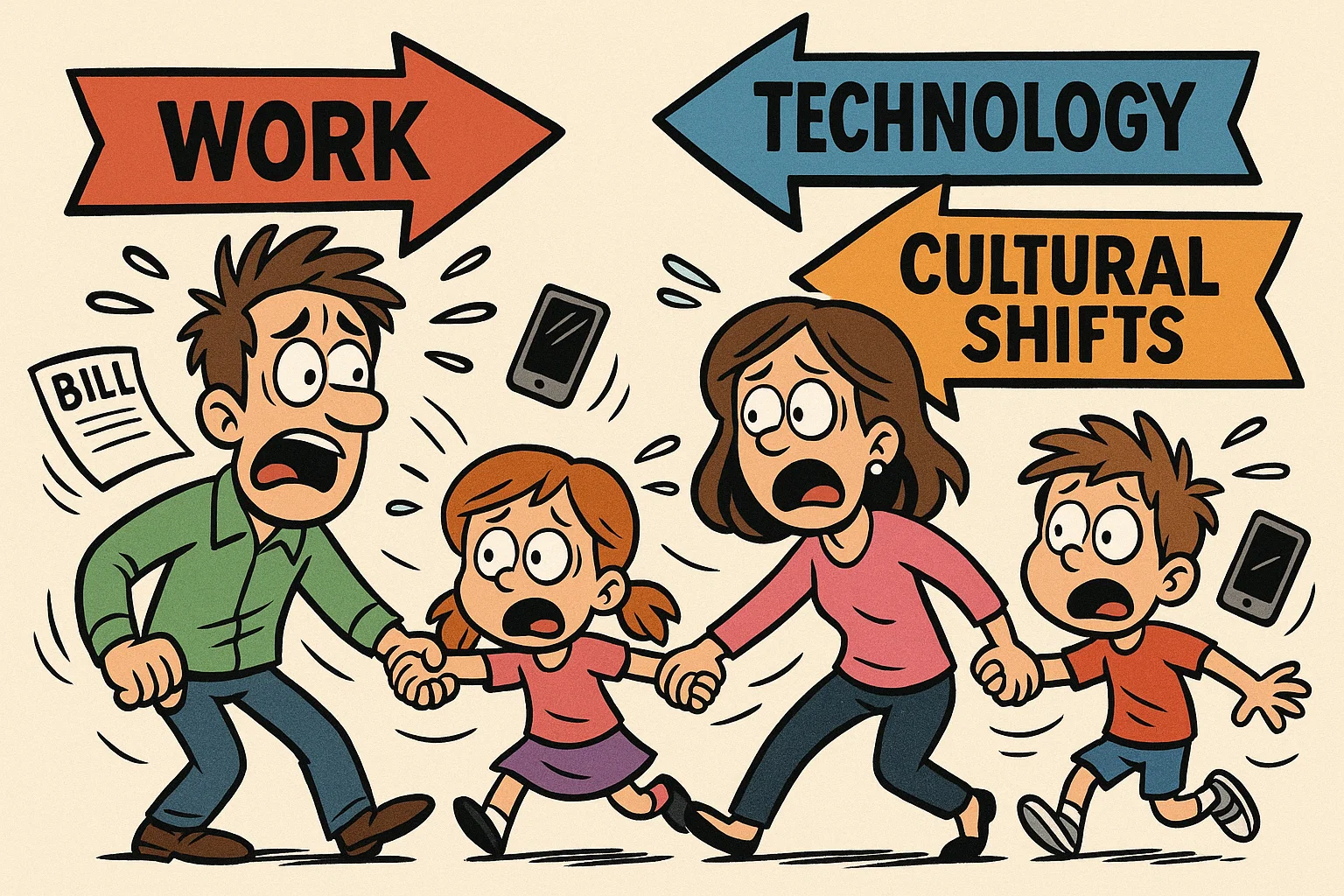
Modern structures face several challenges that have an impact on traditional values:
- Decline of religion: As societies become more secular, the influence of religion on moral values is declining. This can challenge the traditional foundations of home life, as people seek meaning and moral guidance outside of religious institutions.
- Breakdown of family unit: High divorce rates, declining fertility rates, and a rise in childless couples all contribute to a perceived breakdown of the traditional family unit. This has led to concerns about the future of human society and the ability to maintain a strong social fabric.
- Material values vs moral values: In a consumer-driven world, there is a constant tension between material success and moral values. The focus on acquiring wealth and social status can sometimes overshadow the importance of relationships and emotional well-being within the home.
Traditions and Celebrations Associated with Families
Many traditions are central to maintaining traditional values:
- Family meals and gatherings: Regular meals and get-togethers are a hallmark of traditional families. These events provide an opportunity for communication, bonding, and for parents to teach their children about healthy relationships and communication skills.
- Religious holidays: Celebrating religious holidays together, such as Christmas or Hanukkah, reinforces moral values and strengthens bonds. These traditions often involve rituals and storytelling that connect younger generations to their cultural and religious heritage.
- Rites of passage: Rites of passage, like coming-of-age ceremonies or weddings, are important milestones that mark key transitions in life. These ceremonies, often rooted in traditional values, help individuals understand their place within a family and their community.
Cultural Differences in Family Structures and Values
Structures and values differ significantly around the globe:
- Western traditions: Western traditions, particularly in the United States and Europe, have historically focused on the nuclear family and individual autonomy. This emphasis on freedom has been influenced by factors such as access to education and economic opportunities.
- Eastern traditions: In contrast, many Eastern cultures, such as those in China and India, place a high value on extended families and filial piety. The collective good of the clan often takes precedence over individual desires. The group’s reputation and well-being are a shared responsibility.
- Globalization impact: Globalization and the spread of multicultural societies have led to a blending of values. For example, a household may embrace some traditional values from their heritage while also adopting more liberal, modern views from their new home.
Impact of Media Portrayals on Traditional Family Values
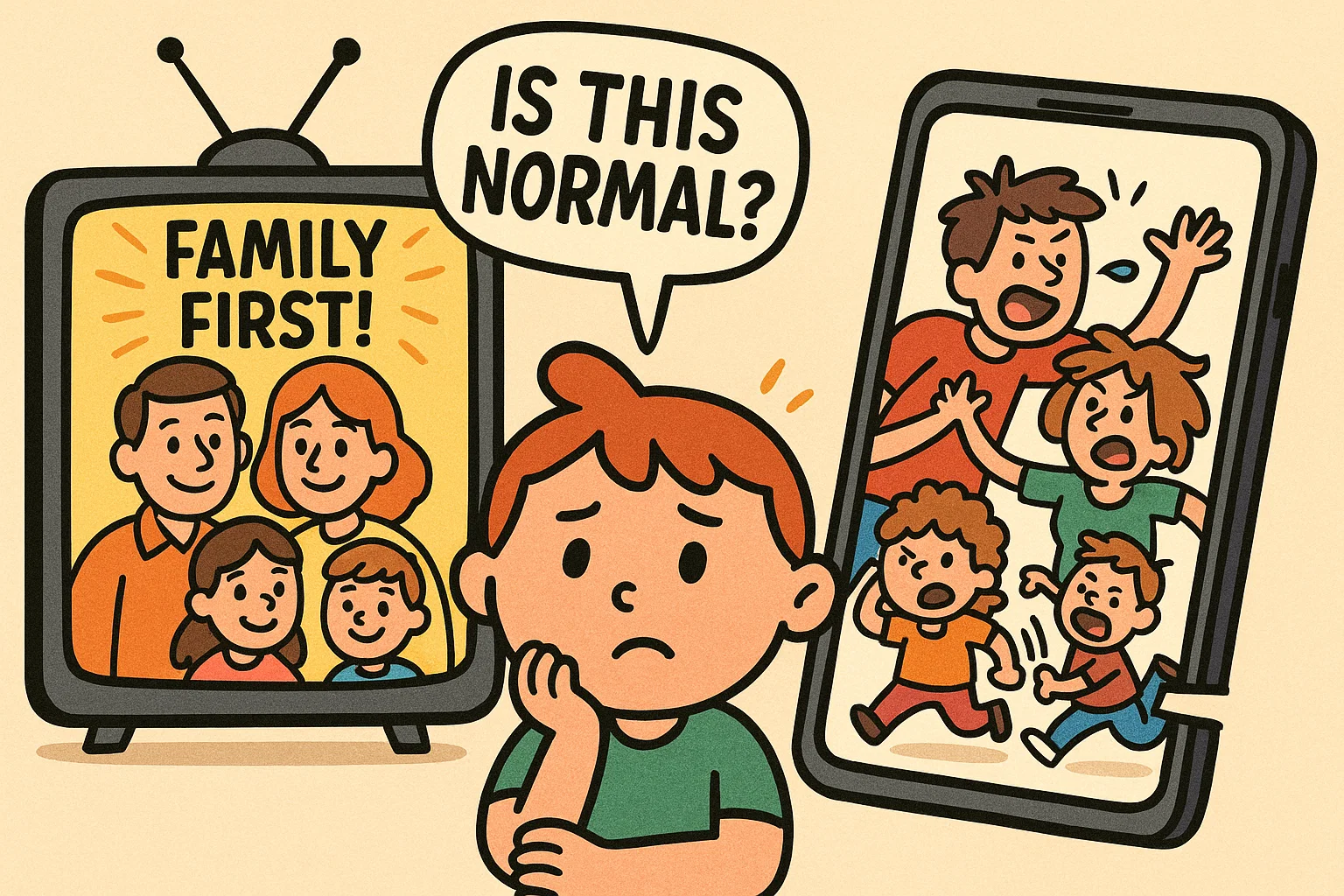
The media often plays a key role in shaping public perception. Consider the different types of portrayals:
- Positive portrayals: Shows like The Cosby Show and Full House presented positive, albeit often idealized, portrayals of the nuclear family. These portrayals, while sometimes critiqued for their lack of realism, helped to reinforce the importance of family dynamics and relationships.
- Negative portrayals: On the other hand, some media portrays traditional families in a negative light, as rigid, old-fashioned, or dysfunctional. This can contribute to a sense that traditional values are irrelevant in today’s society.
- Social media trends: Social media platforms have further complicated the issue. Influencers often showcase non-traditional family models, from single-parent households to childless couples focused on career. These trends can challenge long-held beliefs about what constitutes a “good family.”
Controversies Surrounding Traditional Family Values
There are a number of ongoing controversies related to traditional values:
- Criticism from progressive movements: Progressive movements, including feminist and LGBTQ activism, have been vocal in their criticism of traditional family values. They argue that these values promote inequality and discrimination. The debate around same-sex marriage and same-sex couples’ right to adopt children are key examples of this tension.
- Political and legal debates: Traditional family values are a central topic in political debates, from sex education policies in schools to debates about government support for families. Different political parties often have opposing views on the role of the state in supporting or challenging these values.
- Balance between tradition and modernity: Finding a balance between traditional values and modern society is a major challenge. Many people believe that it is possible to maintain core moral standards while also embracing greater inclusivity and freedom. This is the central tension in discussions about traditional family values today.
Ways to Maintain Traditional Family Values During Cultural Shifts
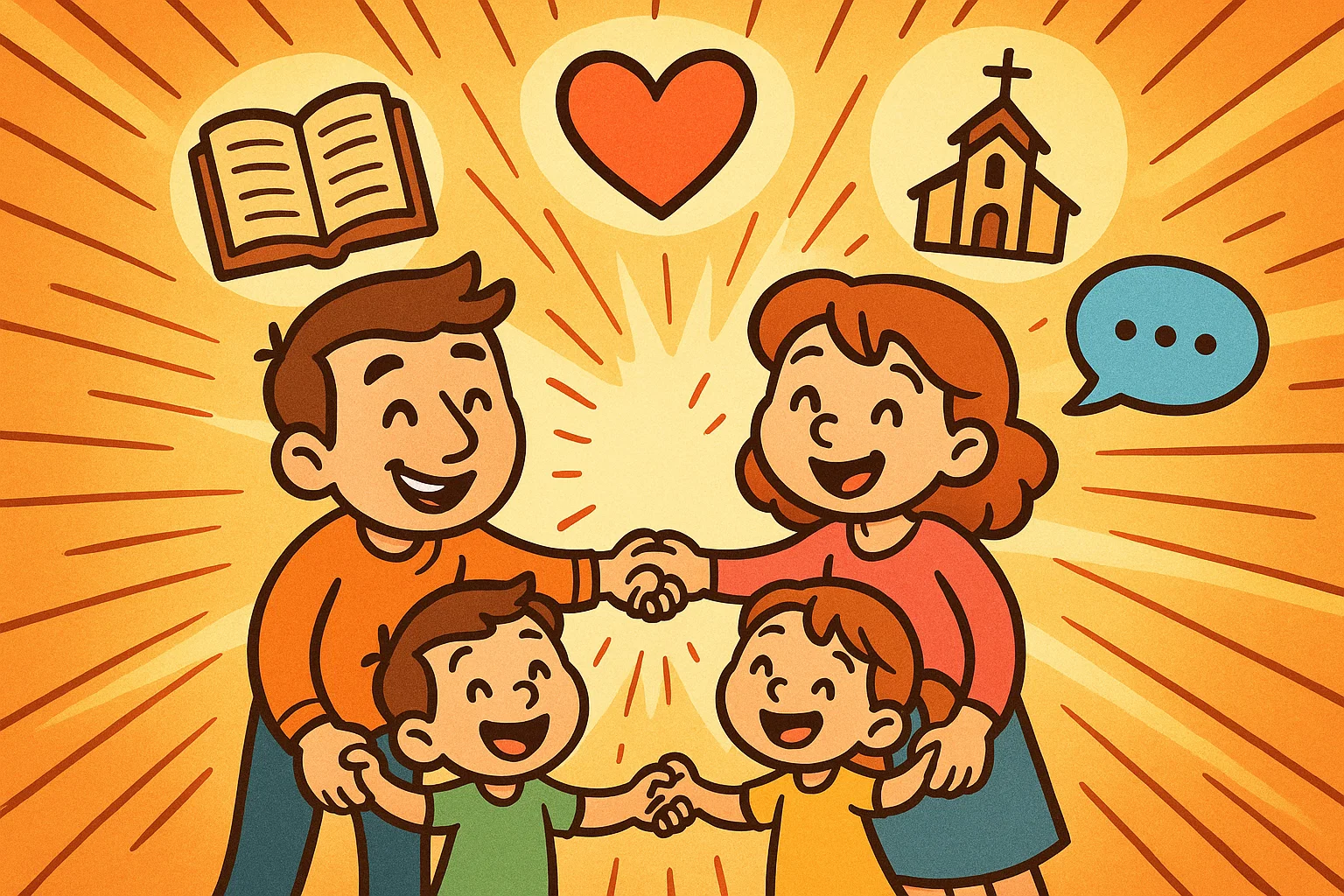
Maintaining family values in a world of constant change requires a proactive approach. Here are a few ways to do it:
- Family communication practices: Open and honest communication is vital. Regular meals, shared moments, and dedicated time for conversation can help households connect and talk about their beliefs and challenges.
- Education and upbringing: Parents can actively teach their children right from wrong by engaging in discussions about ethics and morals. By explaining why certain values are important, parents can help children develop their own moral compass rather than simply teaching them to obey their parents.
- Community and religion support: For many, community and religious institutions provide a crucial support system for maintaining traditional values. These groups offer a sense of belonging and a shared belief system, which can help households navigate a world that sometimes feels at odds with their beliefs. By participating in a supportive community, they can reinforce their core values and pass them on to the younger generations.


